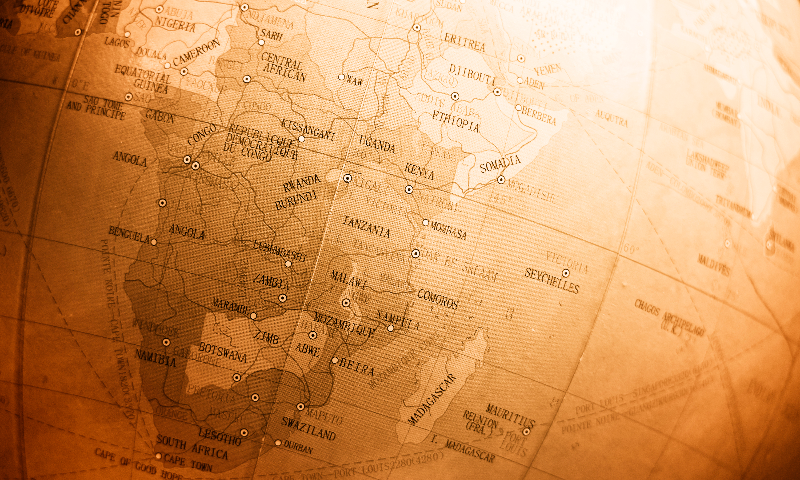
Following a historic oil price crash triggered by COVID-19, African oil-producing countries are renewing their focus on frontier exploration activities in a bid to yield low-cost, high-return discoveries and offset declining reserves of existing markets, as oil demand slowly recovers. With the International Energy Agency estimating demand of 5.7 billion barrels per day in 2021, the signing of key exploration agreements and the introduction of several licensing rounds across Africa reflect the continent’s commitment to maintaining its position as the premier frontier market for oil and gas development projects.
Exploration Deals
Egypt: Egypt has recently signed nine new exploration agreements valued at approximately one billion dollars with both local and international companies, in a bid to boost domestic exploration activities. Minister of Petroleum H.E. Tarek al-Molla has noted that the agreements are part of 12 total deals targeting a minimum investment of $1.4 billion for the drilling of 23 wells, of which nine will be offshore in the Mediterranean and three in the Red Sea. Signed by Egyptian Natural Gas Holding Co., the agreements garner commitments from oil majors including ExxonMobil, Chevron, Total, BP and South Valley Egyptian Petroleum Holding Company. With proven reserves of 3.3 billion barrels of oil and 77.2 trillion cubic feet of natural gas, the North African producer is pushing for further hydrocarbon development and production.
Angola: Angola’s estimated recoverable reserves have been upgraded to 57 billion barrels of crude oil and 27 trillion cubic feet of gas, warranting further exploration, particularly in the frontier Namibe Basin, in which ExxonMobil recently acquired three offshore blocks in December, with a view to drill between 2024 and 2025. A new Hydrocarbon Exploration Strategy 2020-2025 was approved by Presidential Decree last August, focusing on the expansion of geological knowledge of oil and gas reserves and the exploitation of unconventional resources through the auction of 21 onshore blocks between 2020 and 2023; of ultra-deep zones via the negotiation of four available blocks in the Lower Congo Basin by 2022; and of 61,380km² divided into 12 blocks in the Kwanza and Benguela Basins ready for auction by 2024. Additionally, the Strategy targets natural gas development through the assessment of 33 blocks in the Lower Congo, Kwanza and Benguela Basins – as well as onshore basins – by 2025.
South Sudan: South Sudan holds the third-largest oil reserves in sub-Saharan Africa – estimated at approximately 3.5 billion barrels – with only 30% of its acreage explored. In May 2019, South Africa signed an exploration deal with the South Sudanese Government to fast-track exploration and development. South Sudan currently produces 160,000 barrels of oil per day (bopd) and is aiming to increase production capacity to 270,000 bopd. The agreement establishes that oilfield Block B2 will be jointly operated by South Sudan’s national oil company, Nilepet, the Ministry of Petroleum and South Africa’s state-owned Strategic Fuel Fund, and comprises plans for survey and exploration in the area. Having already pledged to invest one billion dollars into South Sudan’s petroleum industry, South Africa expects the B2 area – which includes productive parts of the Muglad Basin – to contain impressive reserves.
Exploration Projects
Equatorial Guinea: Onshore exploration activity in the Rio Muni mainland in Equatorial Guinea has commenced, with Russian geological holding company Rosgeo completing its first phase of geological mapping in November. Serving as one of the most promising areas of exploration in the region, Rio Muni carries the potential to not only sustain and increase domestic oil and gas output, but also diversify the national economy through the exploitation of key mineral resources. Additionally, Trident Energy announced in December that it will drill three wells in Block G in 2021. Following the company’s acquisition of 4D seismic in Q1 of 2020, the wells are expected to yield new development opportunities.
South Africa: With sizeable discoveries made by Total in the Brulpadda field offshore South Africa, exploration activities have increased dramatically in the Outeniqua Basin. According to the French oil major, the potential discovery of net gas could yield approximately 1.5-3 billion barrels. Last October, Total made its second significant gas condensate discovery on the Luiperd prospect of approximately 73 meters of net gas condensate pay. This represents the second exploratory well on deep-water Block 11B/12B offshore South Africa. Accordingly, the country has become a hotspot for exploration activities.
Upcoming Licensing Rounds
Somalia: Somalia represents one of the few remaining frontier landscapes, with only two exploration wells offshore to date. In 2015, Spectrum configured approximately 20,000-km of long offset 2D seismic data offshore, in which the potential for a high-quality oil window was noted. In accordance with these findings, Somalia introduced its first-ever licensing round, in which the Government expects to award seven deep-water offshore blocks early this year. The licensing round will usher in a new era of exploration for the sub-region and is expected to catapult the country onto the African energy stage.
South Sudan: South Sudan is moving ahead with plans for its first-ever licensing round in Q1 2021, despite COVID-19-induced delays last year. With current total production of approximately 170,000 bopd, the country aims to increase this figure to a projected 190,000 bopd. The new oil and gas bidding round, which comprises 14 oil blocks in the northern fields, is expected to boost exploration and development of the country’s reserves and attract further investment into the sector.
Nigeria: Nigerian authorities are considering a new licensing round for 2021, in which the inclusion of ultra-deep-water fields could facilitate the realization of the Federal Government’s production target of approximately three million barrels per day by 2023. Additionally, last June, Nigeria launched its first marginal oilfield licensing round in nearly two decades, featuring 52 marginal fields for which the Federal Government is yet to announce winners.
Source: Africa Oil and Power
Join our mailing list here


